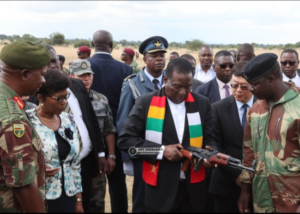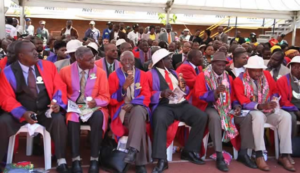THE TSHABANGU SAGA AND ZIMBABWE’S POLITICAL CROSSROADS
In the ever-evolving and tumultuous landscape of Zimbabwean politics, a recent incident has brought to light the ongoing struggles within the opposition. The heart of this political storm involves opposition activist Sengezo Tshabangu and his cohorts, accused of undermining the Citizens Coalition for Change (CCC) for personal ambitions. This controversy centers on the contentious recalls of Members of Parliament and Senators, actions perceived as efforts to diminish the opposition’s resistance against the ruling ZANU-PF party.
At the core of this upheaval is the timing of these recalls. Tshabangu’s faction asserts that their actions were lawful, claiming the recall letters were issued on November 10, 2023, before High Court Justice Tawanda Chitapi’s intervention. However, the recalls took effect after the court order, suggesting a blatant defiance of legal procedures and raising serious questions about the integrity and intentions of these recalls.
Recalls in Zimbabwe are more than administrative formalities; they represent a delicate balance of legal and political mechanisms that must navigate through parliamentary and institutional processes. Ideally, these are not driven by personal vendettas or manipulative schemes. Yet, in this scenario, Speaker of Parliament Jacob Mudenda and others seemingly proceeded with the recalls in outright disregard of the court’s directive.
This defiance became apparent when Mudenda’s lawyer, Shingirai Hoko, heeding Justice Chitapi’s advice, recommended halting the recalls until the court resolved an urgent application filed by CCC. Scheduled for hearing on November 20, this case names Tshabangu, Mudenda, Senate President Mabel Chinomona, and Local Government minister Winston Chitando as respondents. Intriguingly, Chitando was absent in court, as no councillors faced recall.
Represented by lawyers Obey Shava for CCC and Lewis Uriri for Tshabangu, with Hoko for Mudenda and Chinomona, this case is a critical juncture for Zimbabwe’s political terrain. The recall impacting 18 legislators holds significant weight in the parliamentary context, and the hearing’s outcome could drastically influence the nation’s power dynamics and adherence to the rule of law.
Central to this dispute is the alleged court contempt by Tshabangu’s group. Issuing recall notices on November 10 and enforcing them post-interdict exhibits a flagrant disregard for legal norms. This action not only challenges the judiciary’s authority but also threatens Zimbabwe’s democratic fabric.
As the nation anticipates the court’s decision, this episode highlights the precarious state of Zimbabwe’s democratic institutions and the relentless battle for political supremacy. The motives of Tshabangu and his group, whether self-serving or strategic, have cast a pall over the country’s commitment to judicial respect and democratic principles.
In these defining moments, Zimbabwe stands at a crossroads, where the outcome of this case could either reinforce the pillars of democracy or signal a deeper plunge into the abyss of political turmoil. The Tshabangu saga, thus, is not merely a political controversy; it is a litmus test for the country’s dedication to democratic governance and the rule of law.



